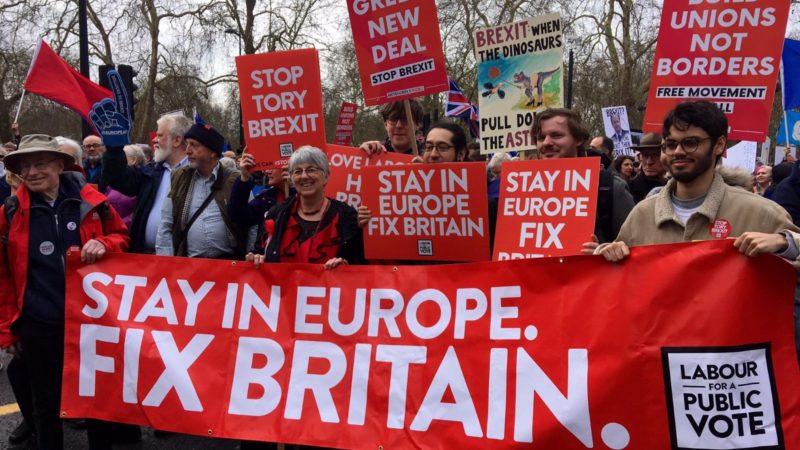
It often seems as if Brexit is a battle of ideas and institutions only, with the debate dominated by issues such as national sovereignty and membership of a customs union. In the Westminster bubble, it’s easy to forget the devastating impact that Brexit would have on real lives.
Lives like the one of this man from Broughton in Wales, who was asked by The Times about Airbus’ statement that they might have to move operations out of the UK as a direct result of Brexit:
“My son and son-in-law are worried — everybody is worried. Closure of the plant would crash the whole area. It would really hit people with mortgages. Broughton village was at one time a small community but it has grown thanks to Airbus. Almost everyone has a relative who works there.”
Many across the country will be able to relate to his fears. For comparison, mine closures in the 1980s, which resulted in endemic poverty and caused bitter confrontation as communities came under threat, led to the loss of around 200,000 jobs. Brexit would cause up to 760,000 job losses including up to 54,250 in Yorkshire, which was so badly affected by the mine closures.
This isn’t just about job losses. People both in and out of work are already facing serious challenges to their income, with 1.6 million food bank parcels given out over the last year. That’s 1.6 million times somebody couldn’t feed themselves and their family, in one of the richest countries in the world, a country where some earn huge sums. 1.6 million times somebody couldn’t afford things like bread, pasta and cornflakes.
Brexit will only make this worse. It is set to shrink our economy by up to 9.3% and further squeeze households via steep price rises. The communities we represent won’t be able to defend themselves against this, with 10 million households having no savings whatsoever. When people talk about ‘respecting the referendum result’, this is what they’re talking about doing. There’s no hope in a ‘soft Brexit’ either, because any kind of deal incurs needless damage: even a ‘soft’ one would cause around 350,000 job losses. Ordinarily, no peacetime government would voluntarily choose a policy that has such a devastating effect, and neither should Labour.
But this isn’t a disaster that will affect everybody in the UK equally. How regions will experience Brexit will differ in both social and economic terms. For example, in the South West there is a strong, proud aerospace manufacturing sector, which supports 98,000 jobs in the wider local economy. That industry relies on just-in-time supply chains to get the parts it needs for production. If the supply chains can’t exist, companies will go.
Or how about the West Midlands, where an economy that was struggling is now on the up again due in part to the strength of the manufacturing sector in the region? The automotive sector is particularly strong, producing nearly a third of cars made in the UK. With Brexit putting at risk the ability of companies to get cars and parts across borders quickly and without tariffs, it’s likely that at least some of them will leave. That will put jobs in a 46,000-strong regional sector at risk.
Brexit will have a serious, long-term impact on lives, as the regional impact report from Labour for A Public Vote makes clear. It’s not an option for us, nor for the people we were elected to represent.
This report was launched at an event in parliament with Anna Turley MP, Chris Matheson MP, Cllr Bridgid Jones and Mick McAteer.




More from LabourList
Ashley Dalton resigns as health minister for cancer treatment
Paul Nowak column: ‘Labour must focus on the basics’
‘Labour’s two-child cap victory rings hollow while asylum-seeking children remain in poverty’